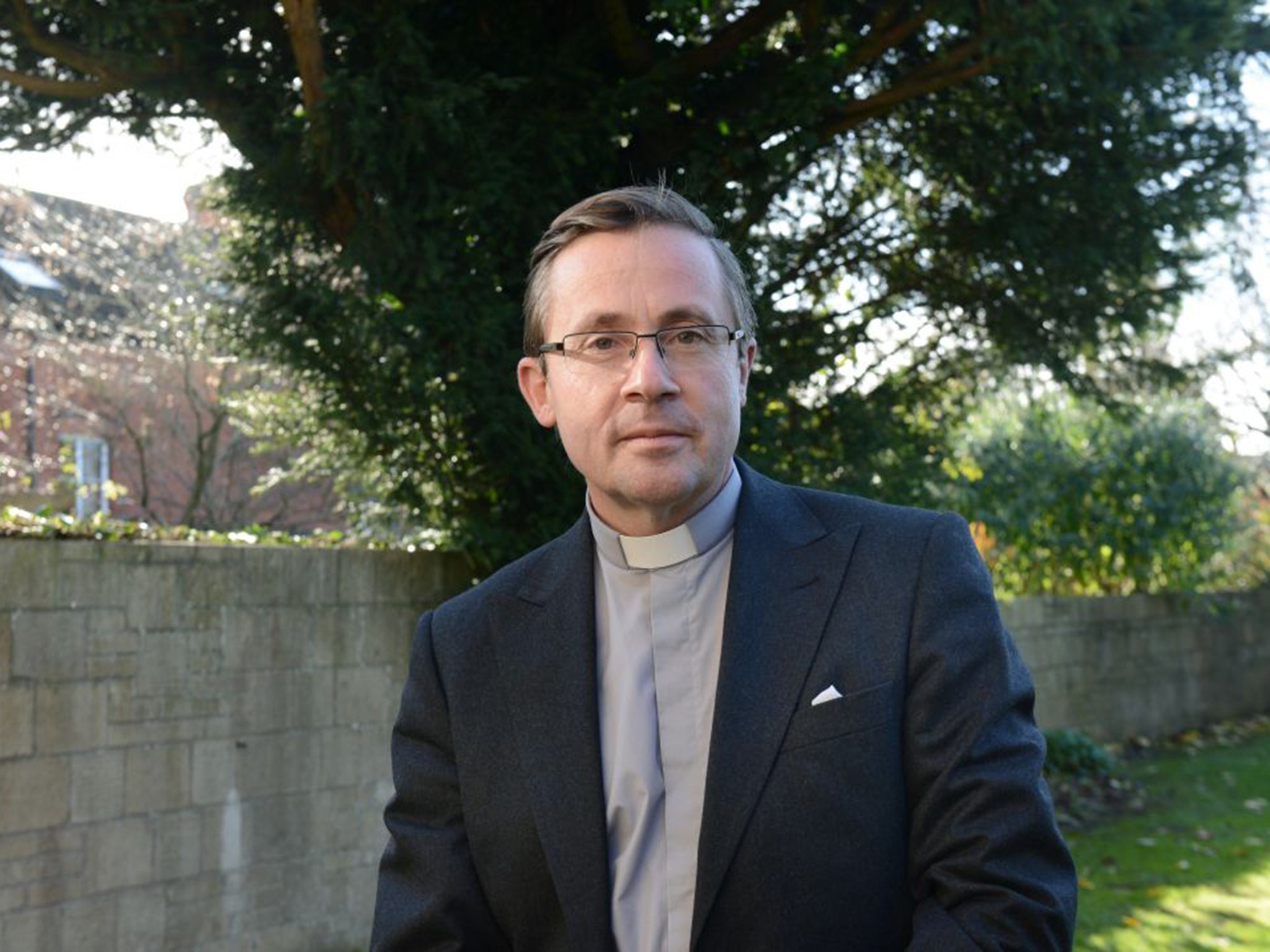Iraq abuse whistleblower Nick Mercer: 'Schools must teach speaking truth to power'
Reverend Mercer joined the priesthood after leaving the Army Jay Williams

Your support helps us to tell the story
From reproductive rights to climate change to Big Tech, The Independent is on the ground when the story is developing. Whether it's investigating the financials of Elon Musk's pro-Trump PAC or producing our latest documentary, 'The A Word', which shines a light on the American women fighting for reproductive rights, we know how important it is to parse out the facts from the messaging.
At such a critical moment in US history, we need reporters on the ground. Your donation allows us to keep sending journalists to speak to both sides of the story.
The Independent is trusted by Americans across the entire political spectrum. And unlike many other quality news outlets, we choose not to lock Americans out of our reporting and analysis with paywalls. We believe quality journalism should be available to everyone, paid for by those who can afford it.
Your support makes all the difference.Children should be given lessons in human rights to give them the courage to blow the whistle on abuses they witness as adults, according to an ex-Army lawyer who went public with his concerns about the mistreatment of Iraqis.
Reverend Nick Mercer, now an assistant school chaplain at Sherborne School in Dorset, believes that classes on human rights would help society avoid repeating the serious cover-ups that have emerged in the past decade, including the Jimmy Savile affair, Mid Staffs hospital, Hillsborough, and the child abuse rings uncovered in Rochdale and Rotherham.
He is delivering a series of talks at state and independent schools urging them to put a sharper focus on recognising human rights during religious education and personal, social and health education lessons (PSHE). He also wants the schools themselves to adopt a higher profile on ensuring their pupils adopt a moral code in their behaviour throughout the school.
It was when he was a military lawyer in Iraq that Rev Mercer became aware of the brutality of some in the armed forces towards Iraqi prisoners which led to the one inmate being beaten to death by his captors in Basra, southern Iraq.
Despite clear evidence that detainees were being mistreated by coalition forces, Rev Mercer, who entered the church after leaving the Army, said that no one intervened, even though “numerous people saw what was going on – numerous people came in and out of the facility”. These included officers, soldiers, clergy and medics. Only a couple of lawyers raised concerns.
Rev Mercer subsequently gave evidence about what happened. “I got caught up in all the debate about it and it became very political,” he told The Independent. “I ended up thinking how do we teach or educate our young children to make a moral stand that’s perceived as being against the institution you represent. How do we train our young men and young women to do the right thing?”
He found himself being ostracised by some in the military as a result of his decision to speak, “although some came and told me I had done the right thing”. At the same time, he also felt he was being called to join the priesthood and eventually left to train to become a vicar – starting off as a curate in Gillingham, Dorset, before taking up the post of assistant school chaplain at Sherborne.
In a recent speech to the Headmasters’ and Headmistresses’ Conference, he said: “Of course this sort of conduct is not confined to the Armed Forces. This is just one of a series of scandals in Britain which have come to light over the past few years – Savile (600 victims), Mid Staffs hospital (between 500 and 1,000 victims), Hillsborough (96 victims – excluding families – where it took the Church to reveal the cover-up that was perpetrated by the police, coroners and others).” He urged schools to use religious studies and PSHE lessons to “foster this spirit of speaking truth to power in all our schools”.
“What I am talking about is human rights – the instruction of those rights in the classroom, the practice and enforcement of those rights in our school communities,” he added. “This seems a remarkable opportunity,” he argued, to create “a future where ... students have the moral compass and moral courage to eschew the knighthoods and speak truth to power instead”.
Join our commenting forum
Join thought-provoking conversations, follow other Independent readers and see their replies
Comments